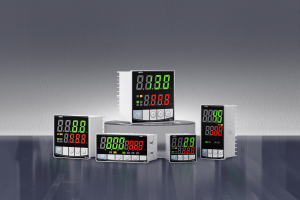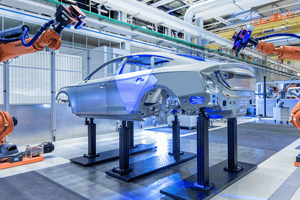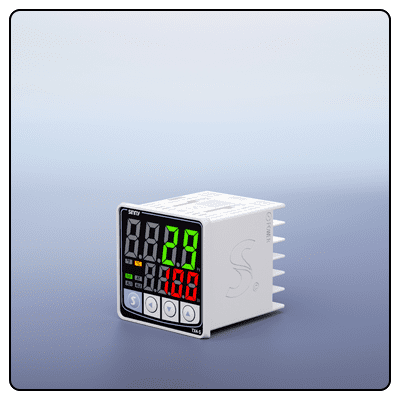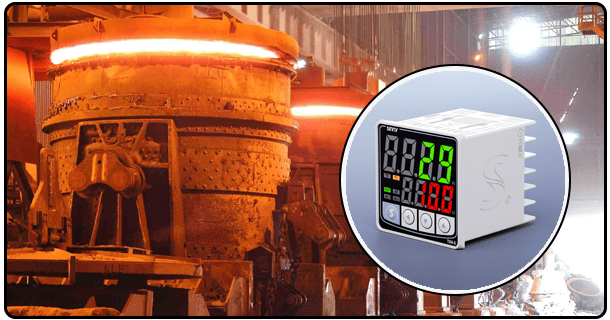The Importance of Temperature Controllers in Research and Development
fKey Benefits of Temperature Controllers
Discover their ability to improve precision, reproducibility, safety, and efficiency across biological, chemical, material science and pharmaceutical research fields.
1. Introduction
Temperature controllers play an essential role in research and development (R&D), across numerous fields. Their precise temperature regulation helps maintain experimental integrity and reproducibility - essential elements that need to remain intact throughout R&D experiments. This article highlights their significance within research & development processes while outlining both benefits and uses for such products.
2. Understand Temperature Controllers
Introduction and Function: Temperature controllers are devices designed to regulate temperatures by comparing an ideal set point with actual readings, making necessary adjustments and keeping desired levels constant. They're essential in processes where maintaining the ideal environment requires precise temperature regulation.
Types of Temperature Controllers: There are various kinds of temperature controllers designed to serve specific functions. Common examples are On/Off controllers, Proportional controllers and PID controllers; understanding these will assist in selecting an effective temperature regulator suited for individual requirements.
3. Key Benefits of Temperature Controllers in R&D
Precision and Accuracy: Temperature controllers offer researchers accurate temperature levels throughout experiments, thus eliminating fluctuations and increasing reliability in results from research experiments.
Reproducibility: Accurate temperature controls allow researchers to replicate experiments in consistent conditions across trials, making sure results remain reliable across multiple trials.
Temperature controllers ensure safe operations of equipment by preventing overheating and overexposure to heat sources; this feature is particularly valuable during experiments using potentially toxic or sensitive substances.
Temperature controllers contribute significantly to improving research processes by optimizing energy use and minimizing waste production, helping maintain desired conditions with reduced energy use.
4. Applications in Different Research Fields
Biological Research: To maintain optimal conditions for cell cultures and biological samples in biological research is of utmost importance, so temperature controllers provide equipment such as incubators with accurate temperatures necessary for cell growth and experimentation.
Chemical Research: Temperature controllers play an essential part in providing accurate results in chemical research, providing reproducibility and accuracy while assuring reproducibility and reproducibility of reactions.
Material Science: For effective material testing and development, precise thermal conditions must be maintained. Temperature controllers regulate furnaces, ovens and other devices used in synthesizing or analyzing materials synthesis or analysis.
Pharmaceutical Research: Pharmaceutical companies depend heavily on temperature controls to preserve drug formulations' stability and effectiveness, so assuring storage environments meet all necessary specifications to preserve pharmaceutical products is of key importance for their survival. Temperature controllers ensure these environments fulfill these conditions in accordance with best practice for pharmaceutical storage and testing environments.
5. Advanced Features Enhacing R&D
Adaptive Control Algorithms: These adaptive algorithms allow temperature controllers to automatically adapt their control parameters as conditions shift in response, guaranteeing optimal performance and stability even in dynamic environments.
Remote Monitoring and Control: With IoT/cloud integration, modern temperature controllers can now be remotely monitored and controlled from anywhere - enabling researchers to make real-time adjustments as they monitor performance with greater convenience and efficiency.
Data Logging and Analysis: Implementing data logging features allows temperature controllers to record temperature data over time, which can then be analysed to spot trends, diagnose issues and optimize processes leading to improved efficiency and performance.
Self-Tuning and Auto-Tuning: Temperature controllers equipped with self-tuning or auto-tuning features allow temperature regulators to automatically optimize their settings to achieve peak performance. Self-tuning controllers learn from experience to make necessary modifications while auto-tuning models allow quick initial set-up by presetting all optimal parameters immediately upon setup.
6. Case Studies and Real-World Examples
Example 1: A biological research laboratory implemented PID controllers to increase experimental reproducibility, producing more consistent results that improved reliability of research findings. This led them to incorporate them in all their future projects.
Example 2: At a chemical research facility, advanced temperature controllers were utilized to ensure consistent reaction temperatures throughout experiments resulting in more precise, reproducible experiments that yield more reliable data.
Example 3: A material science lab installed temperature controllers equipped with data logging and remote monitoring features in order to maintain precise thermal conditions while gathering analytical temperature data to enhance process improvement efforts and ultimately enhance research quality.
7. Conclusion
Temperature controllers play an essential part in research and development by providing precise temperature regulation, improving experimental reproducibility, increasing safety, and increasing efficiency. By tailoring their research needs to advanced features available on controllers and consulting with experts about new technology developments can researchers achieve optimal performance with reliable results. By keeping informed about new technological trends they may optimize temperature regulation processes further and contribute to long-term R&D success.
- Understanding the Different Modes of Temperature Control: A Comprehensive Guide
- Temperature Controllers Provide Advanced Features























